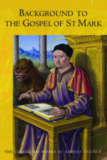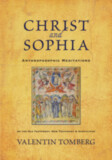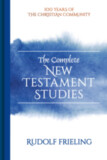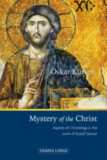Introduction by Robert A. McDermott
Notes by Frederick Amrine
Translated by Charles Davy
- Publisher
Rudolf Steiner Press - ISBN 9781855846692
- Language English
- Pages 268 pp.
- Size 6" x 9.25"
11 lectures, Karlsruhe, October 4–14, 1911 (CW 131)
Knowledge of the cosmic significance of Christ and his mission, once experienced intuitively, has faded over the centuries. As theologians and historians of the Church critically scrutinized the Gospel records, their focus shifted from a gnostic vision of Christ to the human Jesus of Nazareth, the “simple man.”
In these enlightening lectures, Rudolf Steiner shows how the Mystery of Golgotha (the Crucifixion and Resurrection of Christ) can be understood as the pivotal event in human history, and the Gospels as “initiation documents” intended to guide us on a path of spiritual development. He contrasts elements of the religious thinking of Jesuitism with Rosicrucianism, especially in connection with effects on the human will, and discusses the characteristics of the two Jesus children according to contrasting accounts of Luke and Matthew. Steiner also shows how the great religious traditions of Zarathustra and Buddha helped prepare the way for the events in Palestine. Along the way, he clarifies certain controversial topics of Christian theology, including the resurrection of the physical body of Jesus Christ.
The priority throughout these lectures is the intention to recover the esoteric path to Christ and to awake to a new revelation manifesting today—Christ as the “Lord of Karma.”
This edition features a revised translation, complemented with editorial notes and appendices contributed by Frederick Amrine and an informative introduction by Robert A. McDermott.
This volume is a translation from German of Von Jesus zu Christus (GA 131).Rudolf Steiner
Rudolf Steiner (b. Rudolf Joseph Lorenz Steiner, 1861–1925) was born in the small village of Kraljevec, Austro-Hungarian Empire (now in Croatia), where he grew up. As a young man, he lived in Weimar and Berlin, where he became a well-published scientific, literary, and philosophical scholar, known especially for his work with Goethe’s scientific writings. Steiner termed his spiritual philosophy anthroposophy, meaning “wisdom of the human being.” As an exceptionally developed seer, he based his work on direct knowledge and perception of spiritual dimensions. He initiated a modern, universal “spiritual science” that is accessible to anyone willing to exercise clear and unbiased thinking. From his spiritual investigations, Steiner provided suggestions for the renewal of numerous activities, including education (general and for special needs), agriculture, medicine, economics, architecture, science, philosophy, Christianity, and the arts. There are currently thousands of schools, clinics, farms, and initiatives in other fields that involve practical work based on the principles Steiner developed. His many published works feature his research into the spiritual nature of human beings, the evolution of the world and humanity, and methods for personal development. He wrote some thirty books and delivered more than six thousand lectures throughout much of Europe. In 1924, Steiner founded the General Anthroposophical Society, which today has branches around the world.








